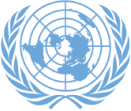-
Good evening and thank you Mistress of Ceremonies for your kind introduction. Thank you also to the Women of Mission International for your kind invitation to my wife Bonnie and I to join you for this spectacular Gala this evening. I’m well aware of how much work goes into organizing an event of this magnitude so congratulations to you for successfully pulling it off.
-
Let me also extend heartiest congratulations to all of our honorees this evening. Thank you for making a difference in the lives of those among us in our societies who are most disadvantaged and vulnerable. I want to say a special word of thanks to the Honourable Minister within the Ministry of Natural Resources of Guyana, Ms. Simona Broomes, who unfortunately could not be here in person this evening. I’ve been a great fan and admirer of Minister Broomes even before she became a Minister. As many of you may know, she often put herself in harm’s way to help young girls in Guyana who were victims of human trafficking. So I’m particularly pleased that she is being recognized tonight by the Women of Mission International.
-
Ladies and gentlemen, I want to take the few minutes that have been allotted to me tonight to share with you some thoughts about the role of civil society and of organizations such as Women of Mission in bringing about change in our societies and in making a difference in the lives of the less privileged among us. There are many, many areas in which you can make a difference. Just look around you. But I want to focus tonight on a single issue - the high rate of suicide in Guyana and what organizations like Women of Mission can do to help.
-
You know that Guyana for some time now has had the reputation of being the suicide capital of the world, with a rate of suicide per capita higher than any other country. I saw in the news earlier this week that we had slipped from number one to number four, but that is little consolation. And as an organization dedicated to helping women and girls, you are no doubt aware that there are more female than male suicide victims in Guyana. The World Health Organization figures for 2015 show that Guyana had the highest rates in the world for female suicides.
-
Interestingly enough, at the bottom of the table, meaning with the fewest suicides in the world, are our fellow CARICOM countries. Six of the eight countries with the fewest suicides, according to the World Health Organization, are Caricom countries, with Barbados and Antigua and Barbuda having virtually zero suicides in statistical terms.
-
So why does Guyana have this tragic distinction of being at or near the top of the table? We know why.
-
First, there’s the ease with which people in rural areas have access to agricultural pesticides.About 62 per cent of suicides in Guyana are from ingesting poisonous liquids or substances.
-
Second, there is the social stigma that is attached to mental health issues in Guyana. People who need help are often reluctant to open up and share their problems with others for fear of ridicule.
-
And add to that the lack of social services, lack of counselling, no crisis hot line, and the prevalence of alcohol abuse, which impairs the judgement of victims and often leads to bad decisions at critical times.
-
So that is the problem we face in Guyana. And it’s a problem that has been with us for a long time.
-
But there is some good news. The Government of Guyana through the Ministry of Public Health, civil society organizations, and individuals both in and outside of Guyana are slowly beginning to take action to address the problem.
-
At the Government level, a National Task Force on Suicide was recently established to raise awareness of mental health issues and to promote suicide prevention through education and counselling. One of the Task Force’s proposals is to include mental health awareness in the syllabus of secondary schools in Guyana.
-
In rural areas, where many of the suicides take place, farmers are now being taught how to safely store their pesticides. Not to keep them on a shelf in the kitchen, for example. They’re also being taught what to do if someone ingests pesticides.
-
The National Psychiatric Hospital in Fort Canje, Berbice – in the old days we used to call it the Mental Asylum or simply the Madhouse – the Hospital is now in terrible condition and is often flooded out by water from the Canje Creek. My wife and I visited New Amsterdam a few weeks ago and we saw it for ourselves. The good news is that the old hospital will soon be replaced by a modern new psychiatric hospital to be built along the East Bank Berbice road. I had a conversation a few weeks ago with the Honourable Minister of Public Health, Volda Lawrence, and she explained that the new hospital would be an attractive, modern facility that would also provide counselling services and outpatient care.
-
And lastly, there’s a growing number of organizations on the ground doing excellent work to tackle this problem. One of these is the Guyana Foundation, which opened its Sunrise Center at Zorg en Vlygt on the Essequibo coast last year. The Center provides professional counselling and mental health support services free of charge to residents of the Essequibo coast. It also provides mentoring programmes to young people and training in various occupational skills. The name Sunrise was chosen, I understand, to give hope to potential suicides so that instead of taking their lives they would choose to get up the next morning and experience a new sunrise.
-
So!? We know that Governments cannot do it all. What then can you as individuals or an organization like Women of Mission do to make a difference? There’s a lot that you can do.
-
You can identify grassroots organizations like the Sunrise Center that are already working on the ground and assist them financially (they depend partly on donations). You can assist with resources in kind, or some of your members may wish to volunteer their time during their next vacation. Kamarang or Orealla intead of a cruise to Cancun or the Bahamas.
-
Or, you can start your own programmes to provide counselling and social services in neglected areas of the country, or in your hometown, or in the school or church that you attended as a child.
-
But maybe the most helpful thing you can do is to use whatever tools and resources you have at your disposal to spread awareness of mental health issues and so help remove the stigma attached to them. In other words, help to change our society’s attitude towards mental health.
-
And, please, don’t confine your help to women and girls. Young men also need help. Globally, suicide is the leading cause of death among young people aged 15-29, both sexes combined. Those of you who are now in the prime of your lives, remember those years in your late teens and your twenties? All the insecurities and self-doubt you had. Maybe not for all of you. Maybe some of you just breezed through those years. But here we are. All of us blessed to be here this evening. We survived and made it through. And the problems that seemed so huge then seem trifling now. It wasn’t the end of the world.
-
So my friends let me conclude by reminding you that in the end a society is judged by the way it treats its most vulnerable and disadvantaged members. I hope that my focus on this topic this evening will encourage you to include it in your own “To do” list and treat it with the urgency it deserves. It’s a matter of life or death.
-
I thank you for your kind attention.


